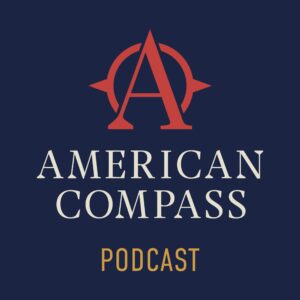
RECOMMENDED READING
Glenn Hubbard tried to dissuade President George W. Bush from putting tariffs on imported steel. As chairman of Bush’s Council of Economic Advisers, he told the president in 2001 that the harm from tariffs suffered by consumers of steel would vastly outweigh the benefits to steel makers. He argued that trying to preserve steel jobs through tariffs would be like trying to save farm jobs in the early 20th century, when farms became more productive and people went to work in factories instead.
For Hubbard, the trickiest challenge is differentiating his stance from that of those fellow conservatives who agree with him on many issues but not on free markets. One such is Oren Cass, whose name appears in the book 39 times. Cass is the executive director of American Compass, a think tank that “emphasizes the importance of family, community and industry.” He is a leader of the newly christened national conservatism movement, which rejects globalization in favor of nationalism.
Hubbard argues that in the name of workers’ dignity, Cass is bent on preserving jobs, especially in manufacturing, that have become obsolete. He says Cass is trying to “restrict the evolution of work” while engaging in protectionism and picking winners and losers.
Cass has already issued a partial rebuttal in the form of an articlein the journal American Affairs that appeared even before Hubbard’s book’s publication date. It’s slyly titled “Have I Got a Bridge to Sell You: The Limitations of Econ 101.” Cass writes that civilizations require walls as well as bridges. As for Hubbard’s argument that countries should specialize in what they’re best at, known as the theory of comparative advantage, Cass responds that “today’s debates concern how comparative advantage is created, rather than discovered.” That is correct and important. Japan and South Korea, to name two examples, did not become world leaders in electronics based on natural endowments. They created their advantages.
Recommended Reading
Critics Corner: Tax Foundation’s Erica York on Tariffs
On this episode of Critics Corner, Tax Foundation senior economist Erica York joins Oren Cass for a conversation about tariffs: who bears the cost, who benefits, and much more. Further Read more…
Cutting China Tariffs Will Offer No Respite From Rising Prices
American Compass executive director Oren Cass makes the case against rolling back tariffs on China in response to inflation.
Why Trump Is Right About Tariffs
Taxing imported goods is unpopular with economists, but it could help the U.S. lower the trade deficit, strengthen its industrial base and safeguard national security.










